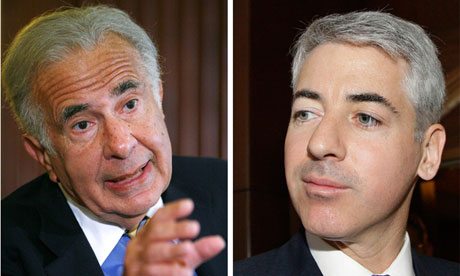The Independent
Tuesday 29 April 2014
The Royal Mail flotation scandal has deepened after officials finally admitted that hedge funds were among the “priority investors” sold hundreds of millions of pounds of shares.
The Business Secretary, Vince Cable, has repeatedly insisted that the handful of key investors offered Royal Mail shares on preferential terms were long-term institutional investors. This was to ensure the new company started with “a core of high-quality investors” who “would be there in good times and bad”. He promised to marginalise “spivs and speculators”.
But sources in the Department for Business have confirmed to The Independent that around 20 per cent of the shares it had allocated to 16 preferred investors had gone to hedge funds and other short-term investors. This would equate to around £150m of Royal Mail shares – 13 per cent of the entire stock sold by the Government. The companies bought in at the float price of 330p a share. The shares shot up within seconds of trading, eventually peaking within weeks at more than 600p, allowing the hedge funds to bank vast profits at the taxpayers’ expense.
Mr Cable is now under mounting pressure to name the priority investors given preferential deals in the form of extra-large share allocations, which his department has so far withheld citing commercial confidentiality. Unions have called for his resignation over the “botched” handling of the sale.
A recent National Audit Office report revealed that of the 16 priority investors, half had sold their shares within weeks of the flotation.
 Vince Cable refuses to apologise over the losses, and says Royal Mail remains fragile (Getty)
Vince Cable refuses to apologise over the losses, and says Royal Mail remains fragile (Getty)Sources close to Mr Cable told The Independent that hedge fund involvement had been necessary to give the new stock “liquidity” and that the practice was entirely normal in share offerings. They added that they made up a small minority of the total share allocated to institutional investors.
But the revelation contrasts with Mr Cable’s previous statements on the sale. He has said institutional demand was so strong that the Government would be able to allocate shares to “responsible long-term institutional investors” rather than speculators.
An analysis of Royal Mail’s share register shows that Och-Ziff, an aggressive US-based hedge fund, had a holding of 10 million shares on 15 October, the day the company’s shares started trading. A week later it had reduced its holding to 3.5 million shares. It is not known if Och-Ziff was allocated shares or bought its holding from other institutional shareholders who sold out as soon as shares started trading.
Lansdowne, another hedge fund which is known for its close links to the Conservative Party, also appears to have received an allocation of around 18 million shares, at a cost of just under £60m. Lansdowne said the owners of the shares are Lansdowne’s clients not Lansdowne. It is understood that Lansdowne has not sold any shares.
The revelation that the Government knowingly sold off Royal Mail shares to hedge funds is likely to come under scrutiny today when the Public Accounts Committee questions the Department for Business’s Permanent Secretary and representatives of the investment banks who handled the sale on behalf of the Government.
The PAC will examine what advice was given by investment banks including Goldman Sachs, UBS and Lazard and why the shares were priced so cheaply. It will also demand to know why Lazard has been appointed to run the vast majority of major privatisations under the current Government following previous revelations by The Independent.
 Shares in Royal Mail were floated on the London Stock Exchange last October (Getty)
Shares in Royal Mail were floated on the London Stock Exchange last October (Getty)Today in openly hostile exchanges with MPs on the Business Select Committee, Mr Cable refused to apologise over accusations that the Government sold Royal Mail on the cheap. He argued that the 360-year-old postal service remained “a fragile company”, despite becoming a City favourite since shares debuted in October.
Conservative committee member Brian Binley said that government advisers had underpriced the shares out of the “fear” of being unable sell them at a higher but more accurate valuation. “I don’t understand why you are being so obstinate about getting this right when you so palpably got this wrong,” Mr Binley admonished William Rucker, the chief executive at lead adviser Lazard.
Business minister Michael Fallon insisted that the Government had sold the shares “at the best price we possibly could have got at that particular time”. Committee chairman Adrian Bailey mocked this claim as “absolutely Alice in Wonderland”.
Mr Fallon also indicated postmen and women were partly to blame for the suppressed price of the sale, because the unions had “no interest in lifting the threat of industrial action”.
However, the Business Secretary conceded that he would have to take a close look at whether selling shares in the markets was the best way of privatising public assets.
He also promised to “reflect” on whether the full list of the 16 major institutional investors should be revealed. Mr Cable has agreed to privately hand the list to Mr Bailey.
Then and now: What Cable said
“We are in a position to ensure we do get the right type of investor community – pension funds, insurance companies that hold the savings of millions of people. That’s the type of community we want.”
Vince Cable to MPs in October 2013. (At the same hearing he said the Government would be able to block shares from going to “spivs and speculators” in favour of “responsible long-term institutional investors”.)
“We wanted to make sure that the company started its new life with a core of high-quality investors who would be there in good times and bad, interested in Royal Mail and the universal service it provides for consumers over the long term. We were told if we sought a higher price, these investors would have walked away, leaving the company exposed to short-term hedge funds with different objectives.”
Mr Cable in an interview in December 2013
“Having a long-term investor base remains a basic objective, and we have achieved that fundamental objective.”
Mr Cable in the Commons on 1 April 2014
 ,
, 


